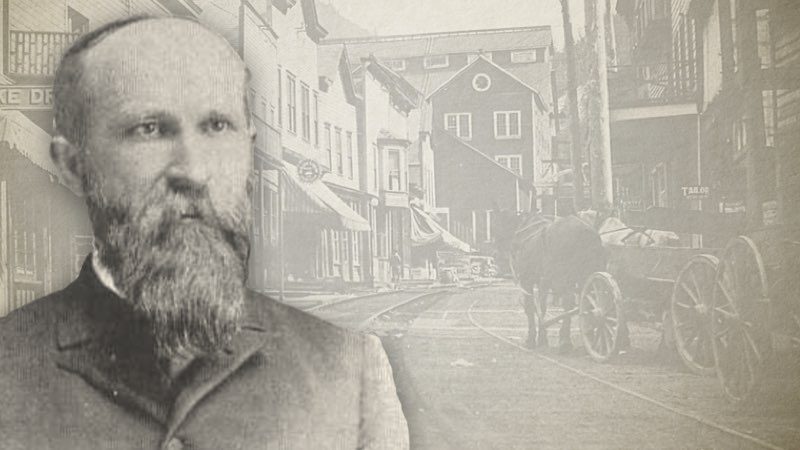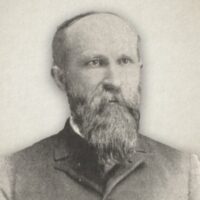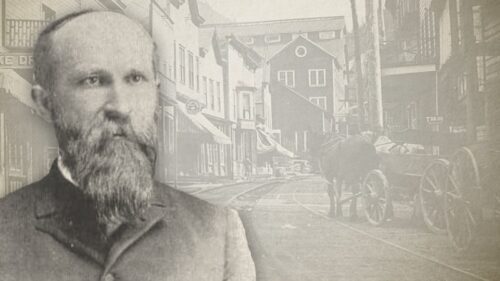
Chapter 1: True and False Churches
An unusual interest has, of late, been awakened in the study of church history. This is a hopeful indication. It shows that many are disposed to turn away from human organizations, and seek for the true church of Christ, as revealed in the Gospels. It is worse than folly to suppose that the Saviour left his work so incomplete that uninspired men, of later years, must take it up and bring it to perfection. It must be a recognized fact that Christ established his Church, as a “pillar and ground of the truth.”
All institutions, claiming to be churches, which antagonize the churches of Christ, must be false, and are, therefore, of Satan. The God of heaven could not have instituted organizations that rival his own, or bring his people into disrepute. “He that is not with me is against me; and he that gathers not with me scattereth abroad.”
That there should be organizations claiming divine origin, and yet lacking the sanction of Christ, is not strange. “Men have stolen the livery of heaven to serve the Devil in,” and Satan has masked himself with truth, that he might drag souls down to ruin. Error has ever been gilded. There is nothing very valuable that has not been counterfeited. The presence of the counterfeit attests the existence of the genuine. If there was not a true church there would be no false churches. The lines must be sharply drawn. Error must be unmasked, and the truth brought into contrast. The multiplicity of so-called churches awakens the thought that all cannot be churches of Christ.
Would God impede the progress of his own cause? Would he build but to tear down? He is not the author of confusion, but of peace. He may purge, but will never destroy his churches. The splendor of his truth will blaze out amid the darkest gloom. His kingdom must destroy all other kingdoms. In order that this may be accomplished, there must be a contest between truth and error. God’s word must be kept before the people. All creeds must be tried by his word, and the wood, hay and stubble be burned.
The churches of the present day should correspond exactly with the divine original. Nothing short of this should satisfy the inquirer after truth. Church histories are plentiful. Men have traced the histories of their own organizations back to their origin, and with pride they sometimes point to their founders. But who was the founder of the New Testament churches? When and where was the first church on earth established and who were the members?
These are questions which many cannot answer. We need a treatise of this kind; one so plainly written that the simplest mind may compare its statements with the divine record. We need also to compare the doctrine of the true churches with those of the false churches of the world, in order that the errors of the one may be the more clearly seen when brought into contrast with the truths of the other. Surely the Holy Spirit did not so obscure the truth that we cannot find it. We propose to look into the Scriptures for a Scriptural church, and then trace its history through the intervening centuries. This can only be done in many instances by the light of the martyr fires, or the blood-stained foot-prints of the suffering witnesses.
Men have come to attach the word church to all organizations engaged in Christian work. Such organizations, unless they bear the marks of a Scriptural church, are usurping the authority of Christ, and will receive the anathemas of heaven. “As we said before, so say I now again, if any preach any other gospel unto you than that ye have received, let him be accursed.”—Gal. 1:9. “If there come any unto you and bring not this doctrine, receive him not into your house, neither bid him God speed, for he that biddeth him God speed is partaker of his evil deeds.”—2 John 10:11. “With these passages of Scripture before us we not only cannot afford to be wrong ourselves, but cannot recognize any organization which does not bear the marks of a Scriptural church. Loyalty to the truth, and to our Master, requires that the principles and doctrines of the New Testament churches be kept prominently before the people.
That a large proportion of Christians do not know what constitutes a gospel church, is seen from the diverse opinions respecting it. People talk about the “universal church,” “the church at large,” “branches of the church,” etc. These expressions convey but an indefinite idea of a church, and one without any foundation in Scripture. They show, however, a necessity for an investigation of the subject from a Scriptural standpoint. The great question which should interest us is, what was the nature of the organization which Christ called his church, and the relation that we sustain to that organization? Does that organization exist to-day? If so, how can we ascertain the fact?
Evidently if we can find the particular organization in the New Testament which Christ called his church, and ascertain the declarative principles governing the New Testament churches, then finding these principles perpetuated in existing organizations of the present day, we have found a gospel church. To this one, and to this alone, do we owe allegiance. Before it let every other organization claiming the rights and privileges of a church perish. Let us oppose such organizations as we would oppose a false god, and ”earnestly contend for the faith which was once delivered unto the saints.”
The blood of martyrs in other ages attested the love they bore to the cause of Christ and the truths of his word. We should be no less faithful in our day. Human traditions are as displeasing to God now as they were eighteen hundred years ago. Among all the conflicting doctrines as taught by men, we can only hope to find the truth in the word of God.
Author of the “Compendium Of Baptist History”. Please inform the Editor of the AHB (via the Contact page) if you have biographical information on this author. Thank you.
Shackelford on Baptist History (Complete)




